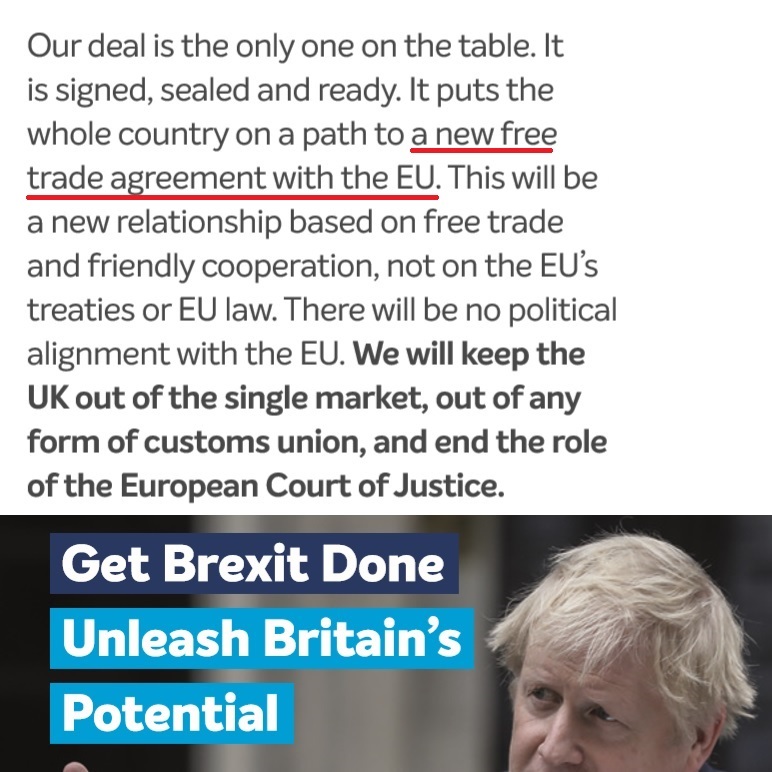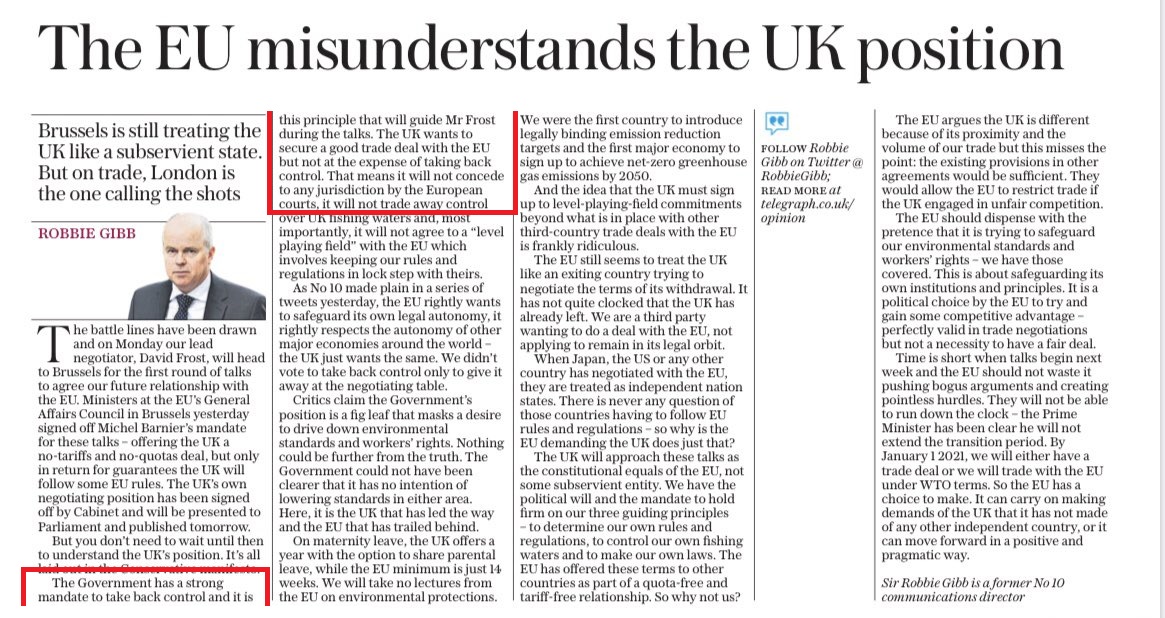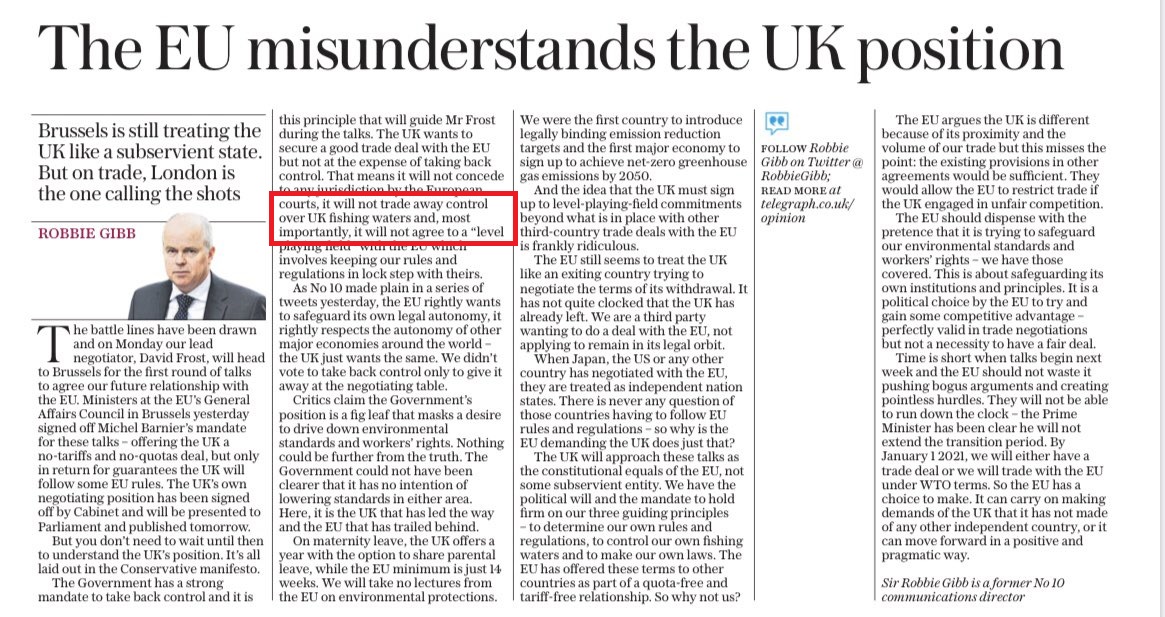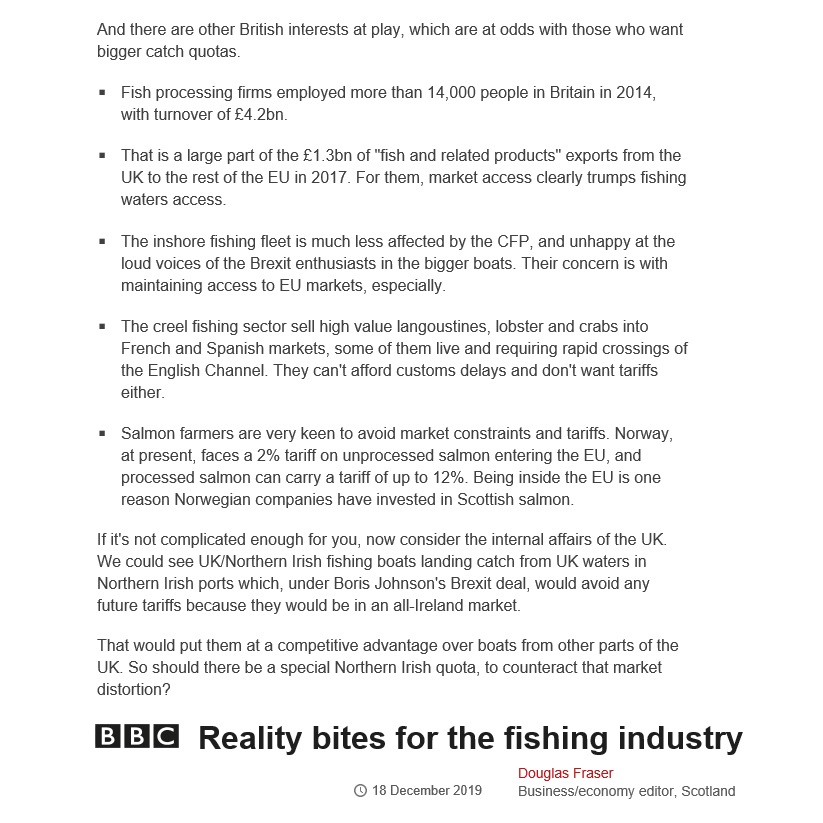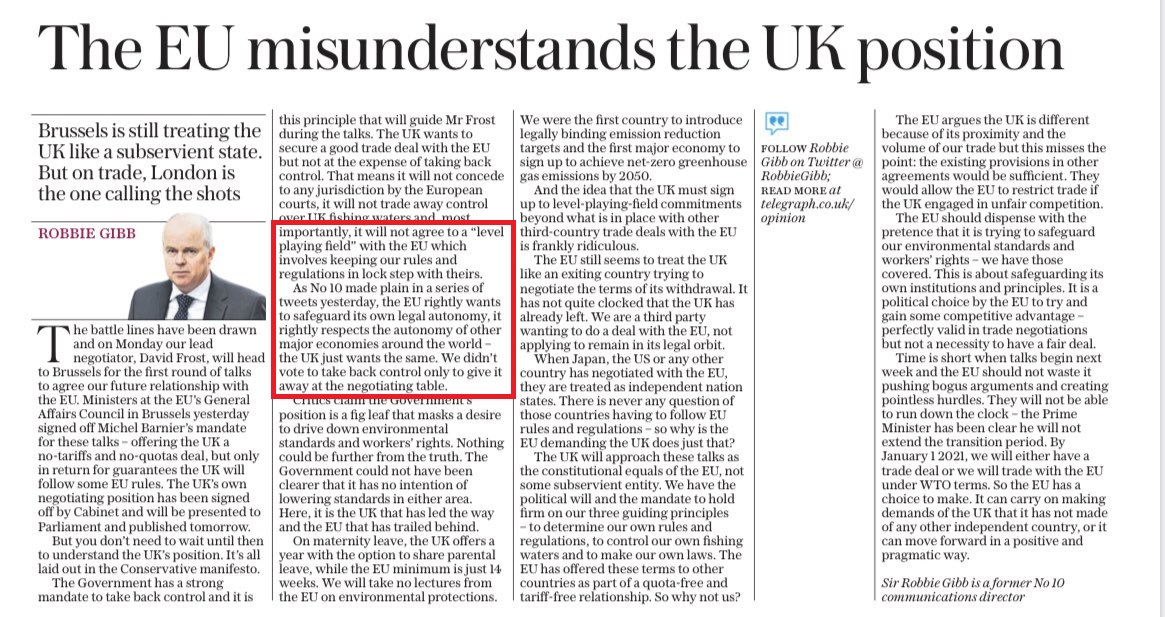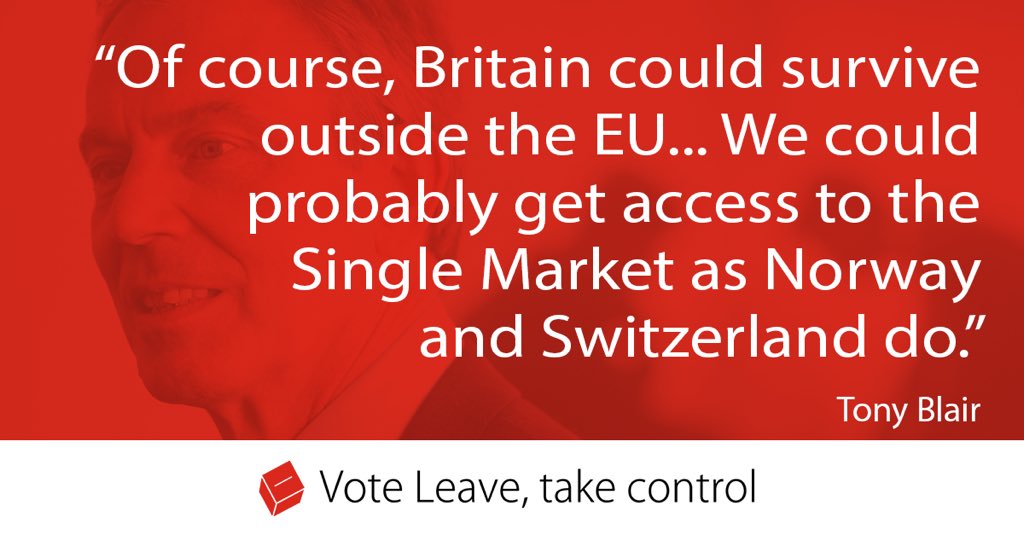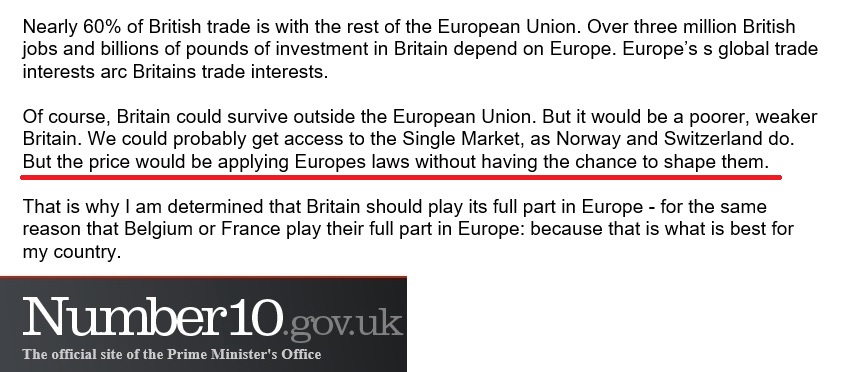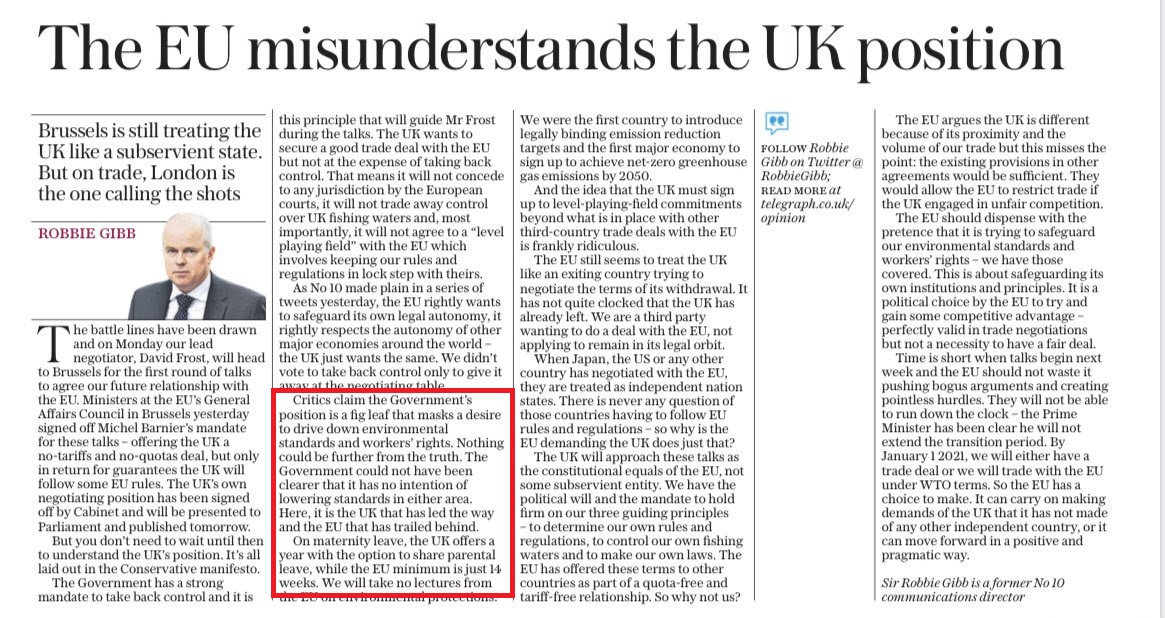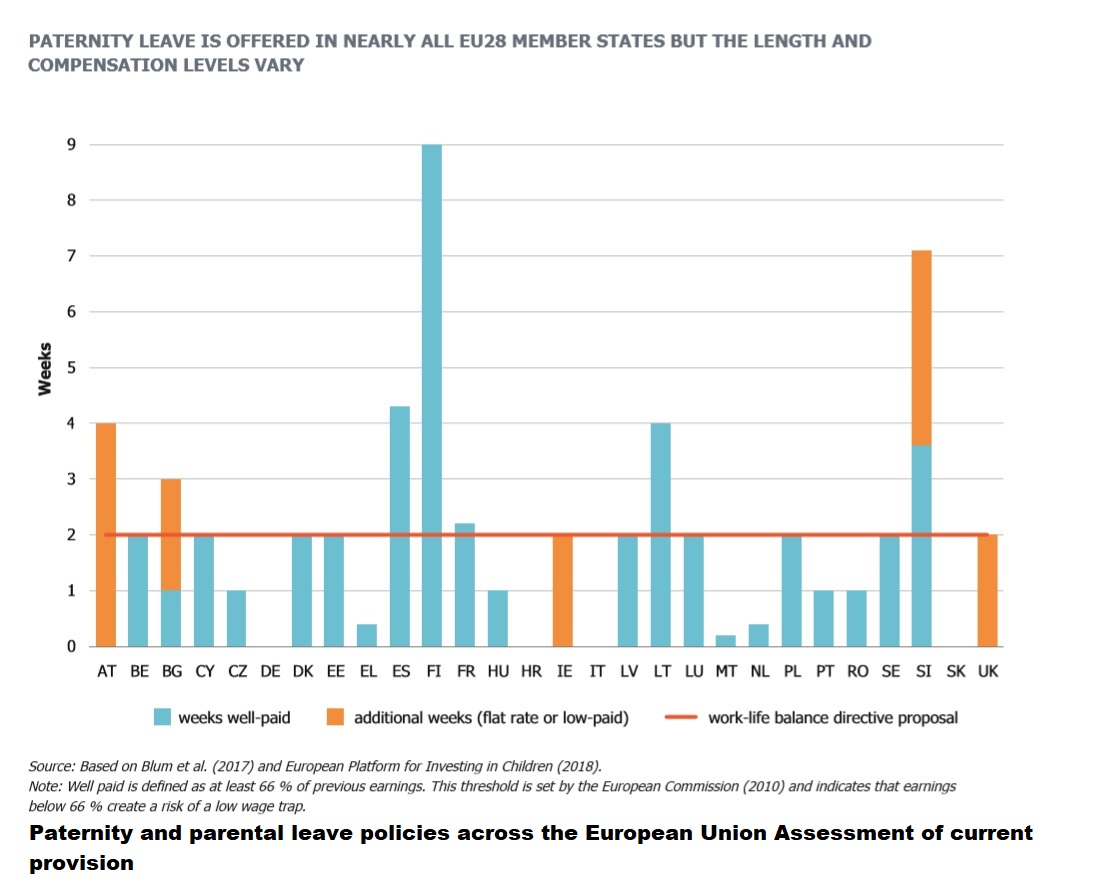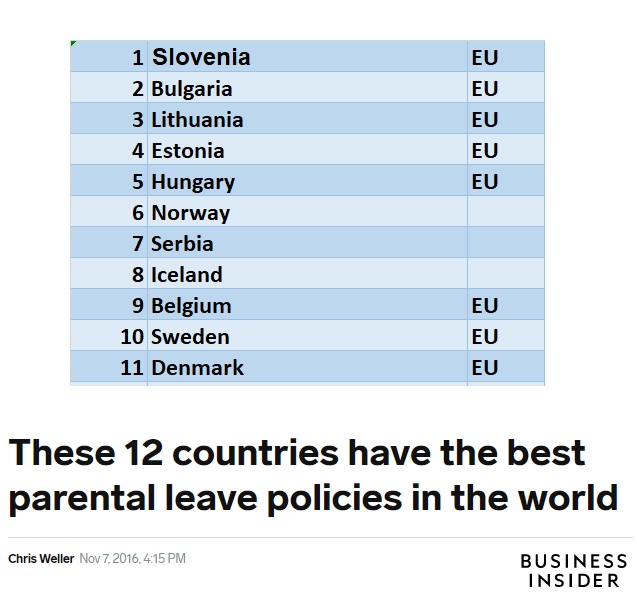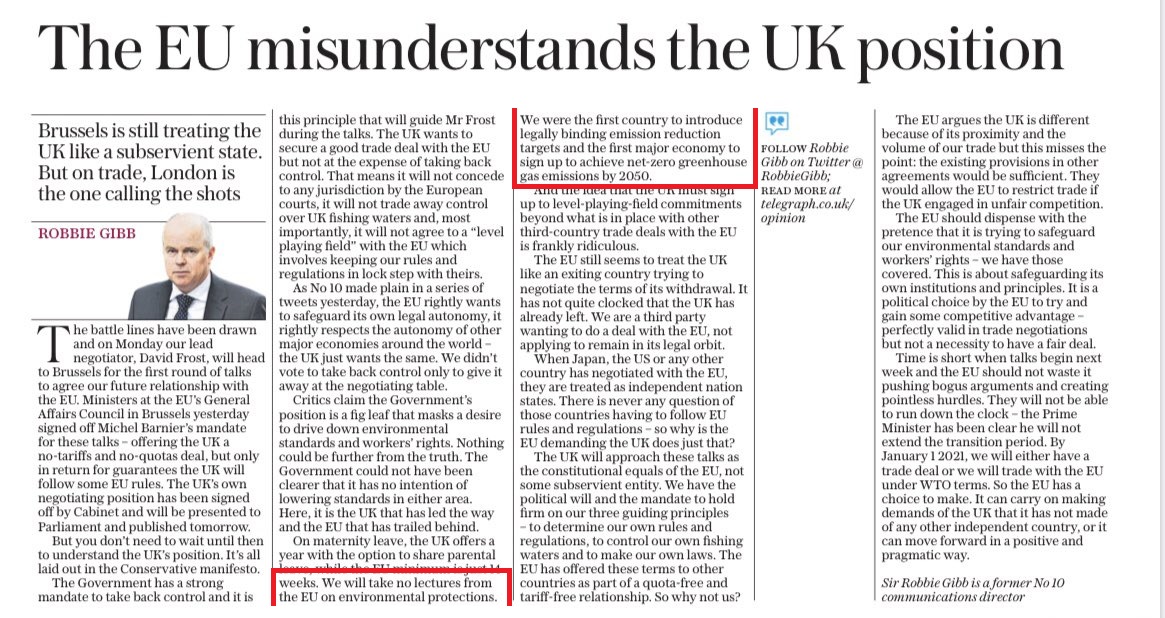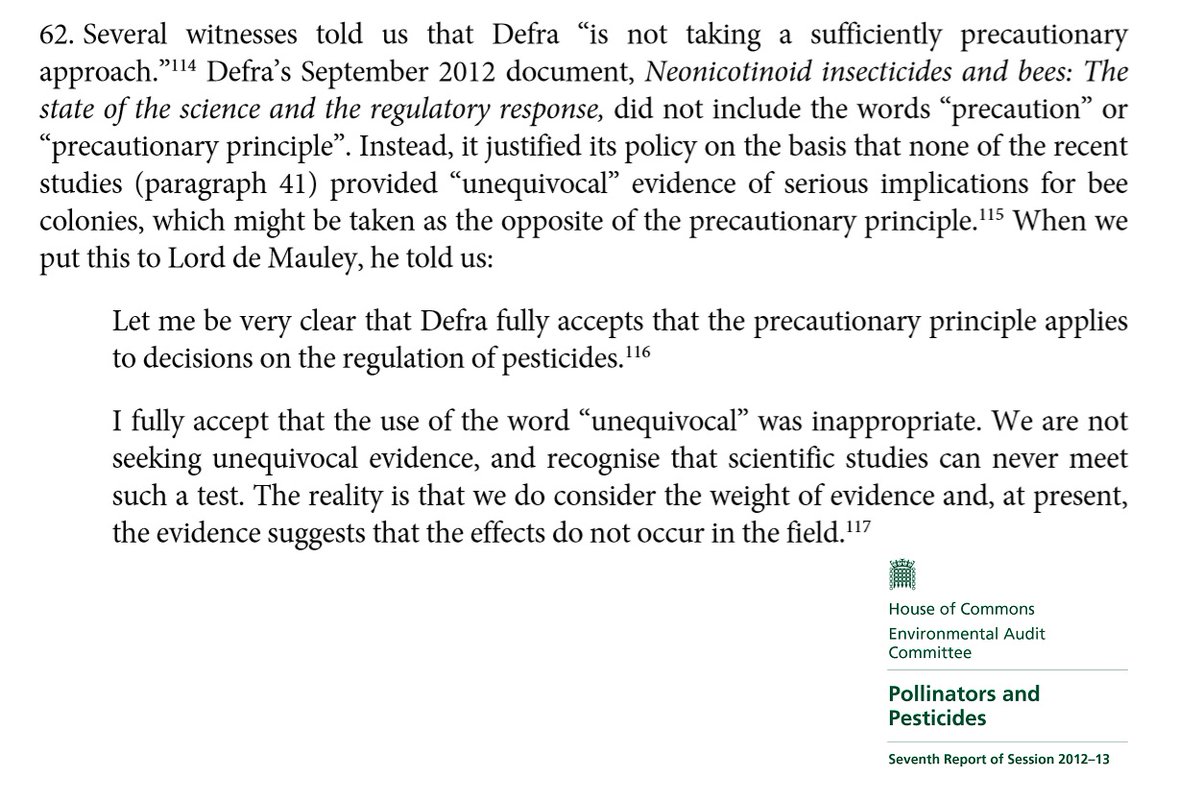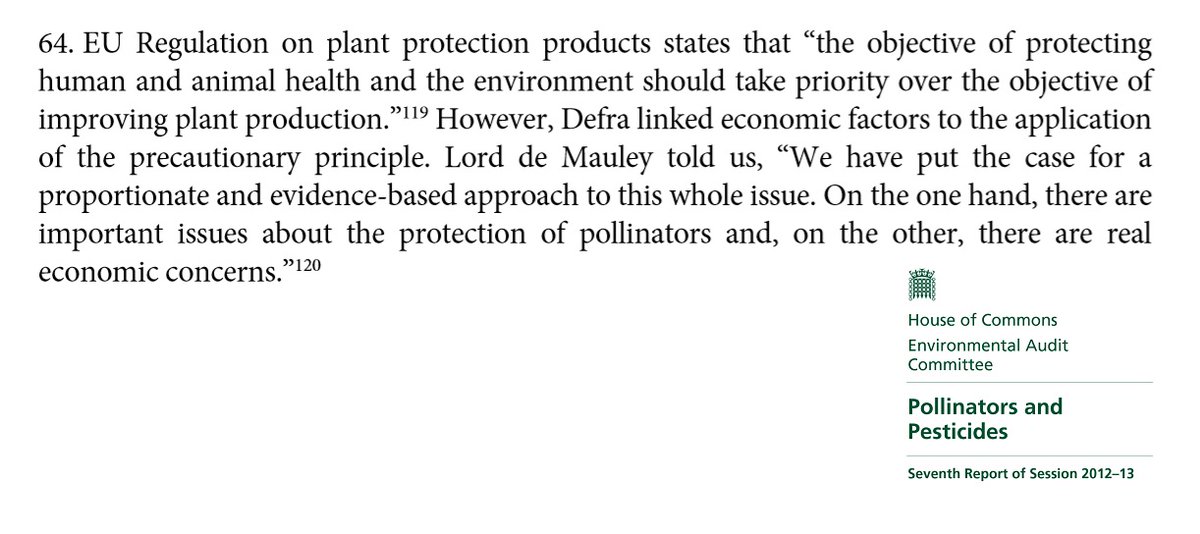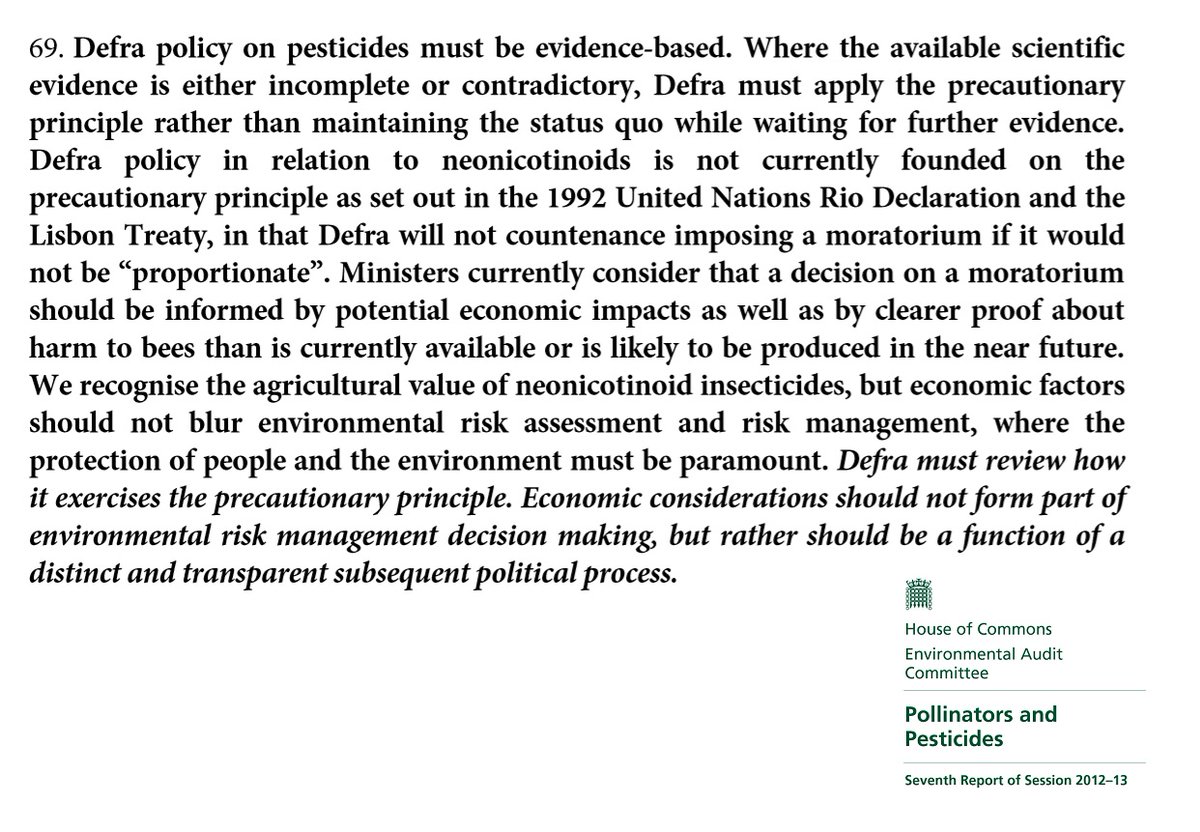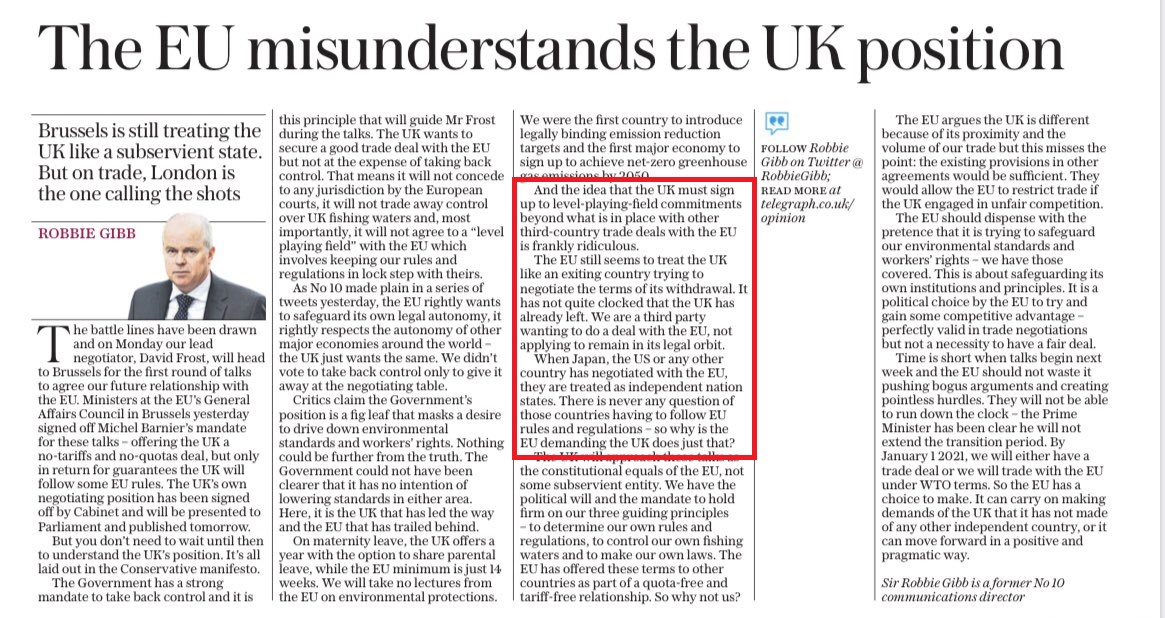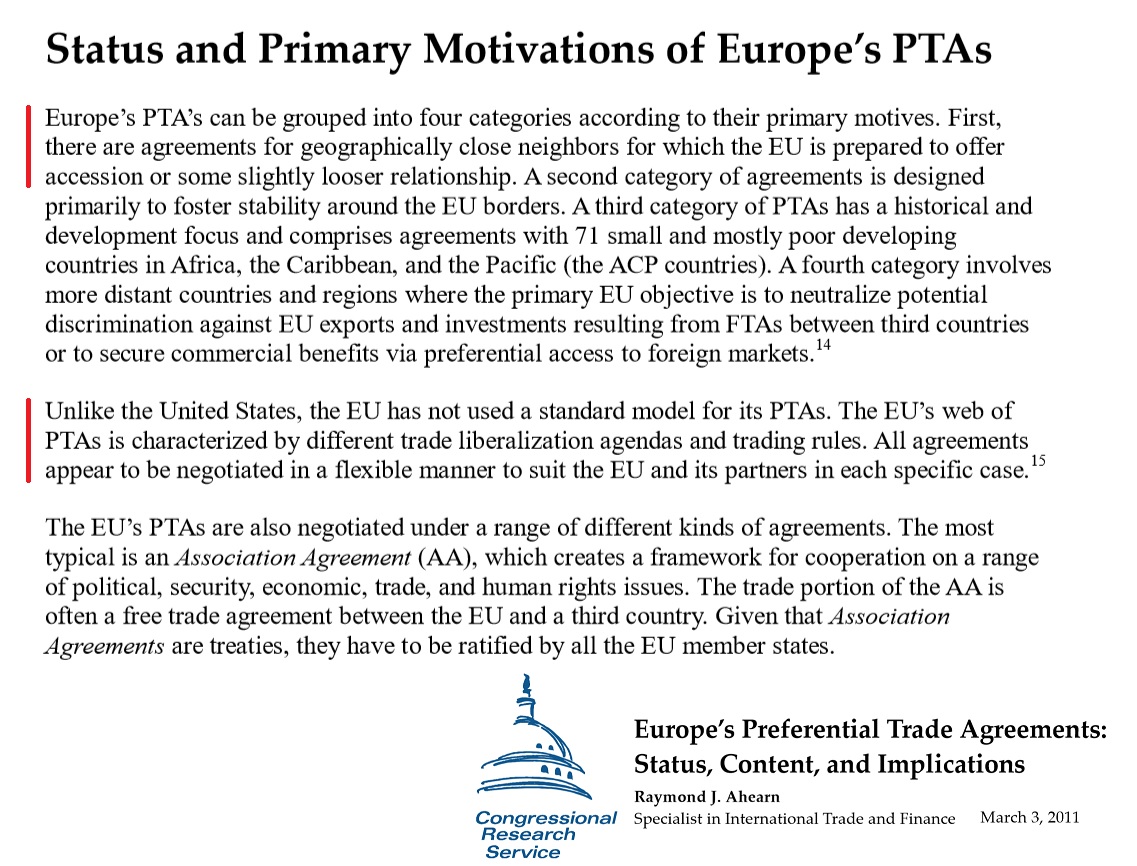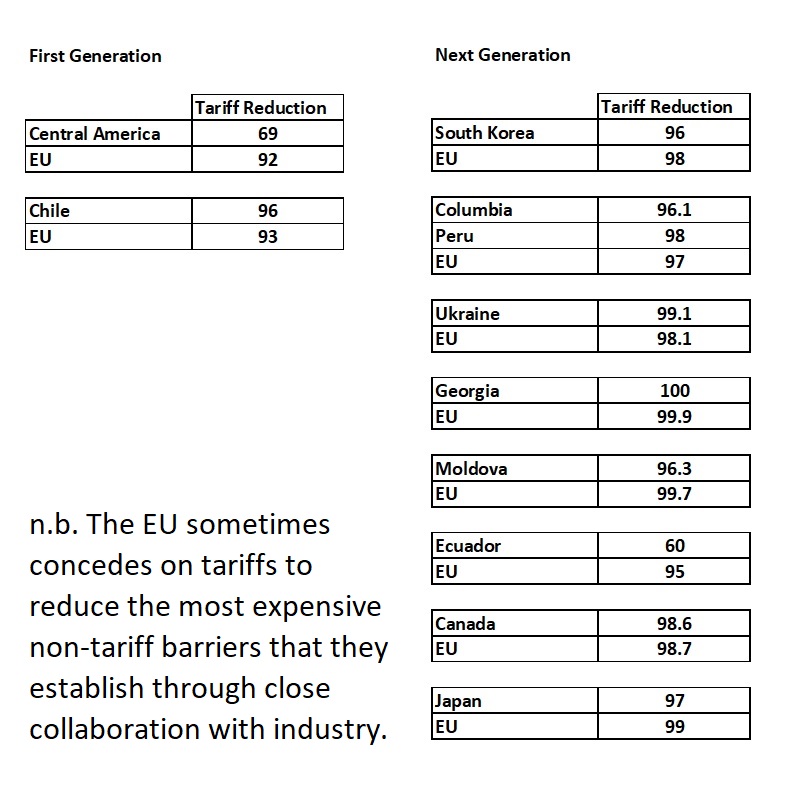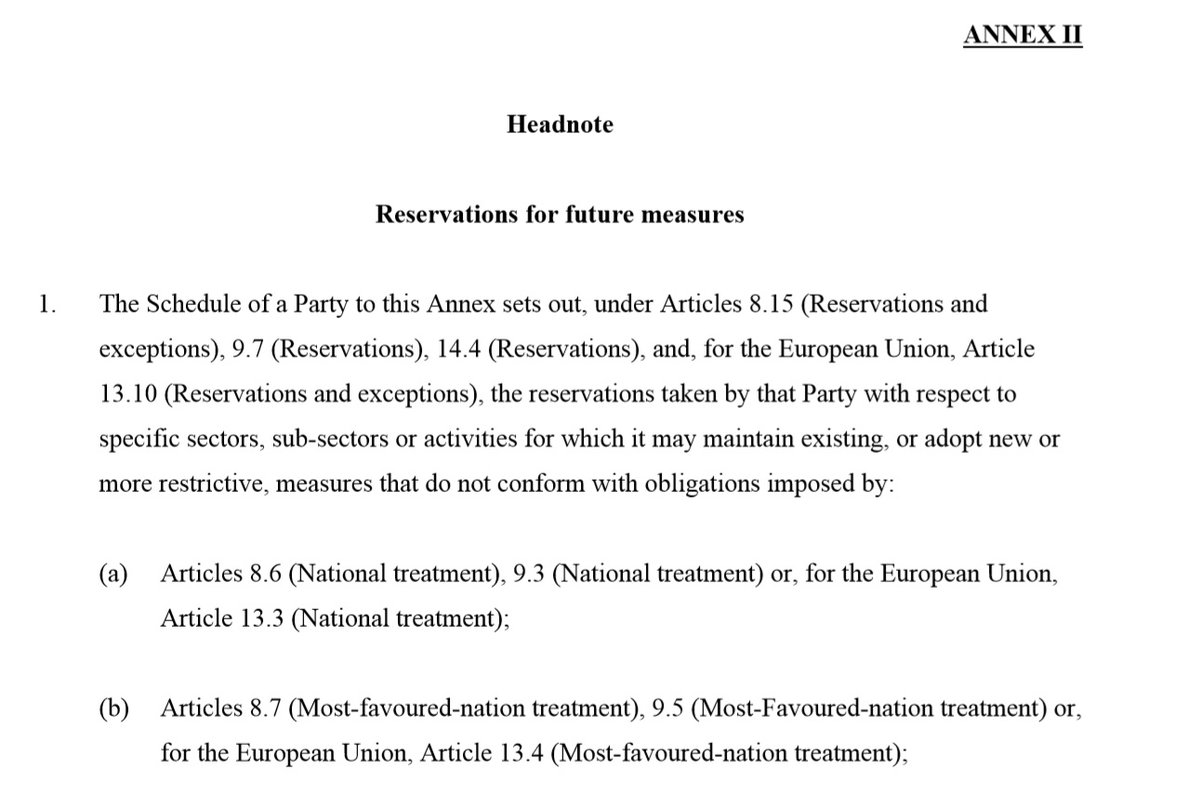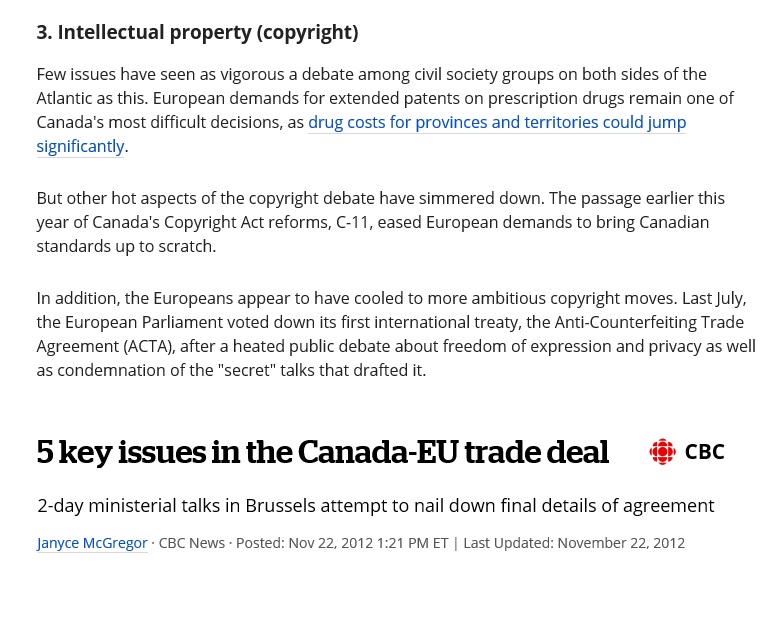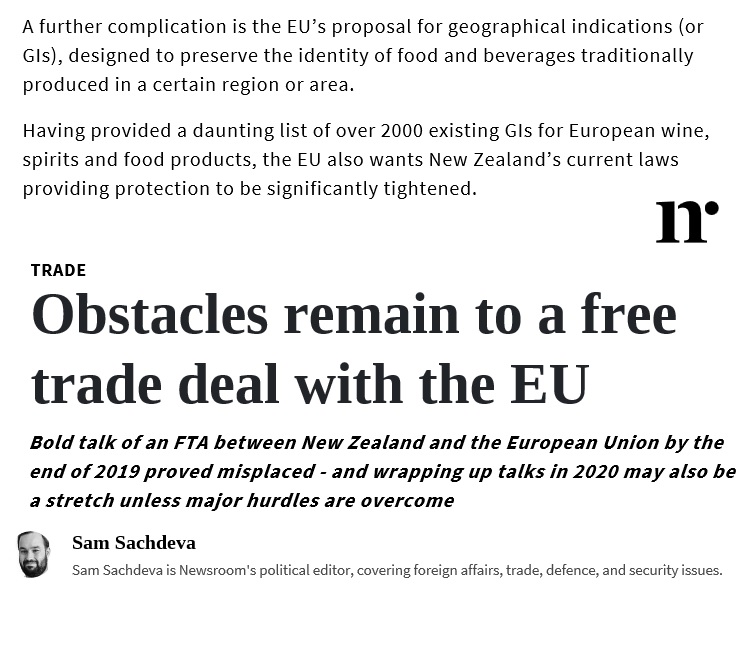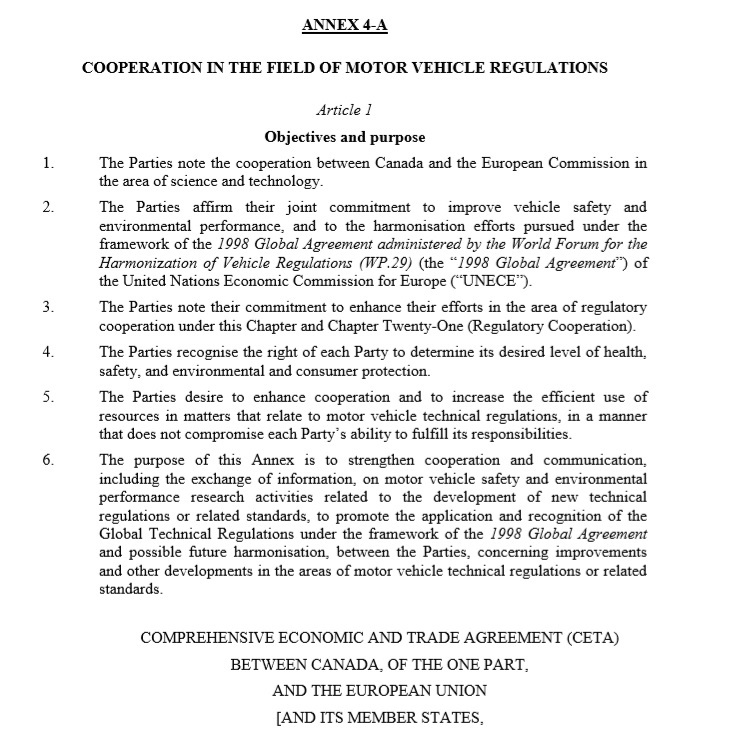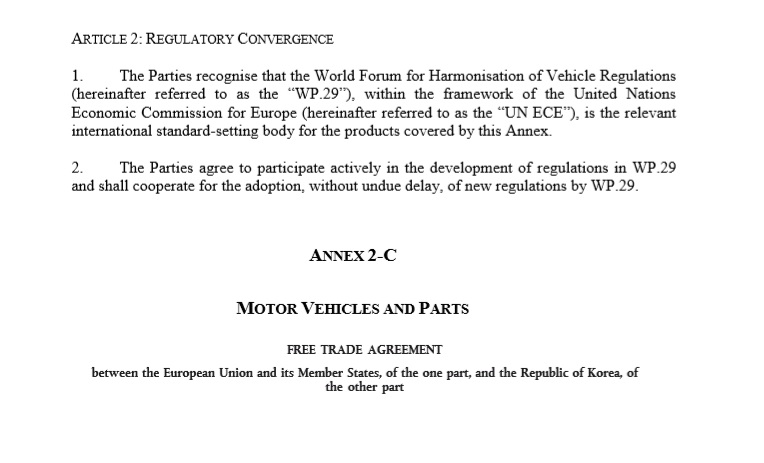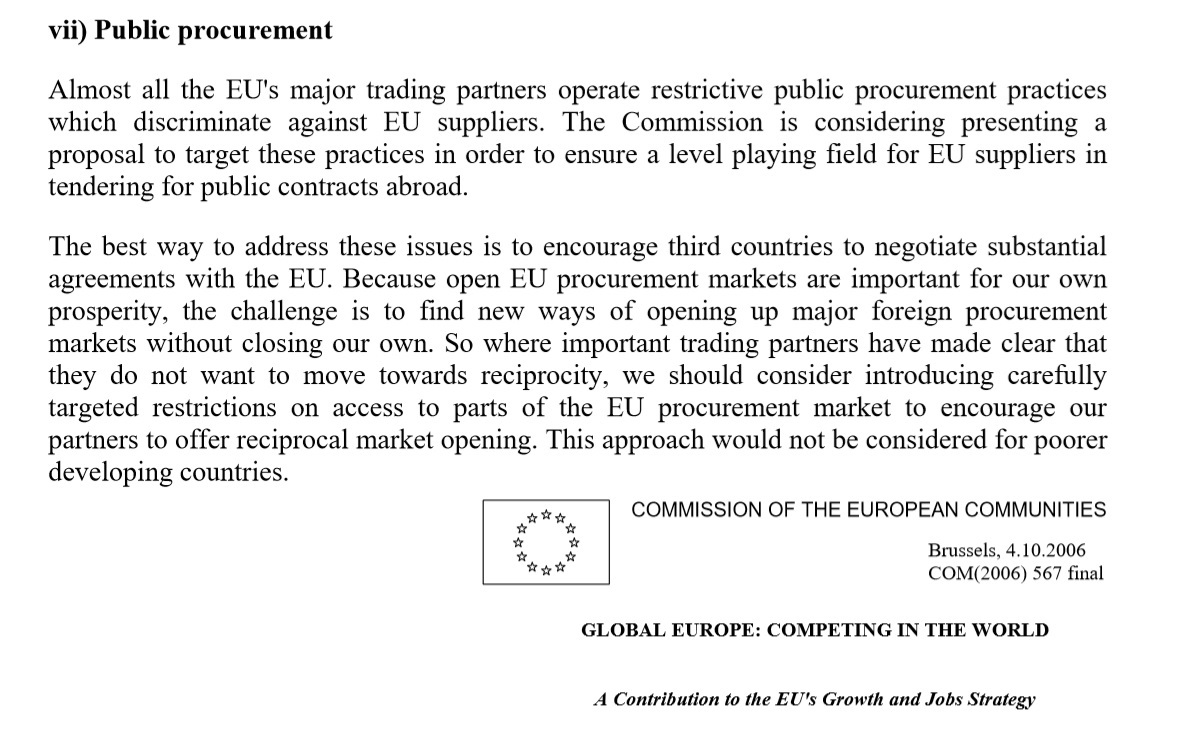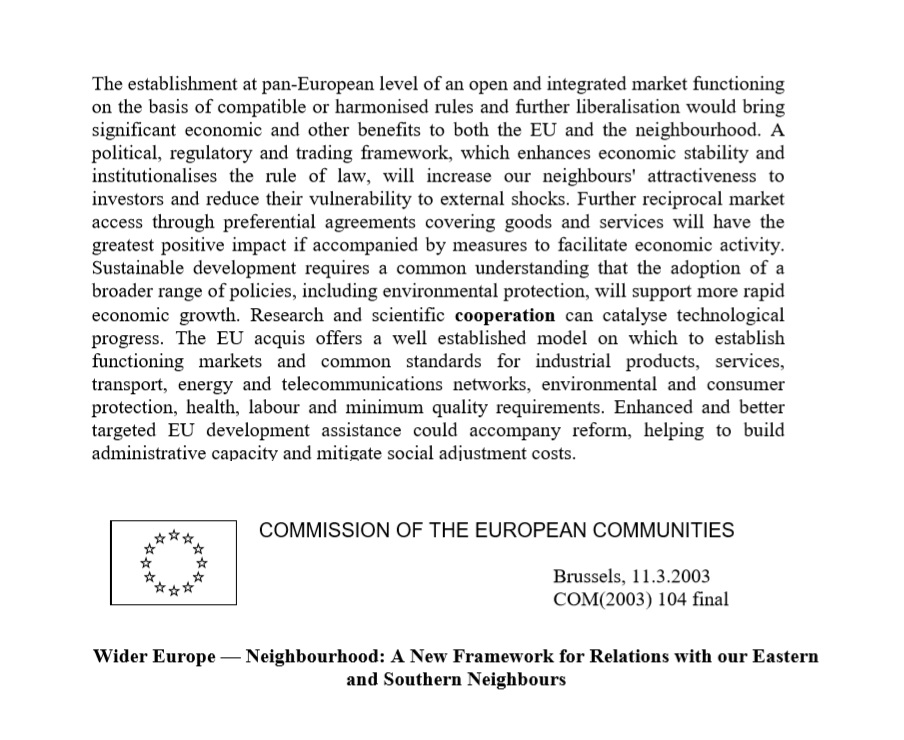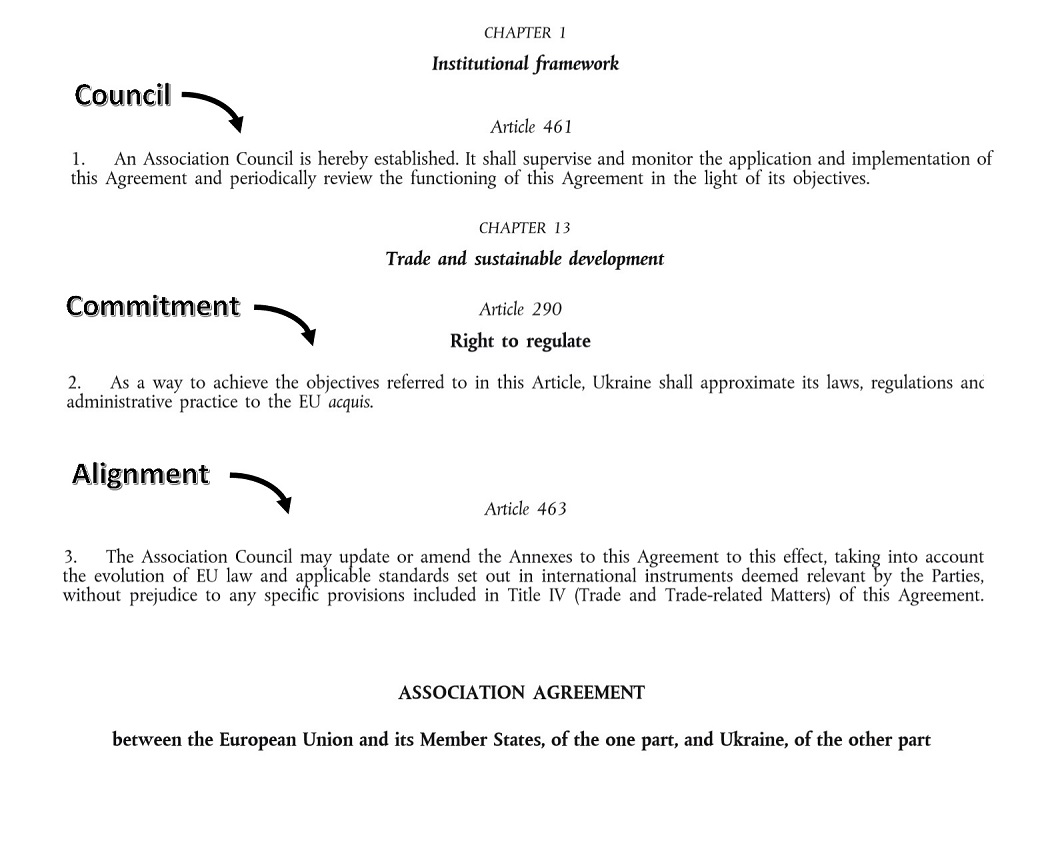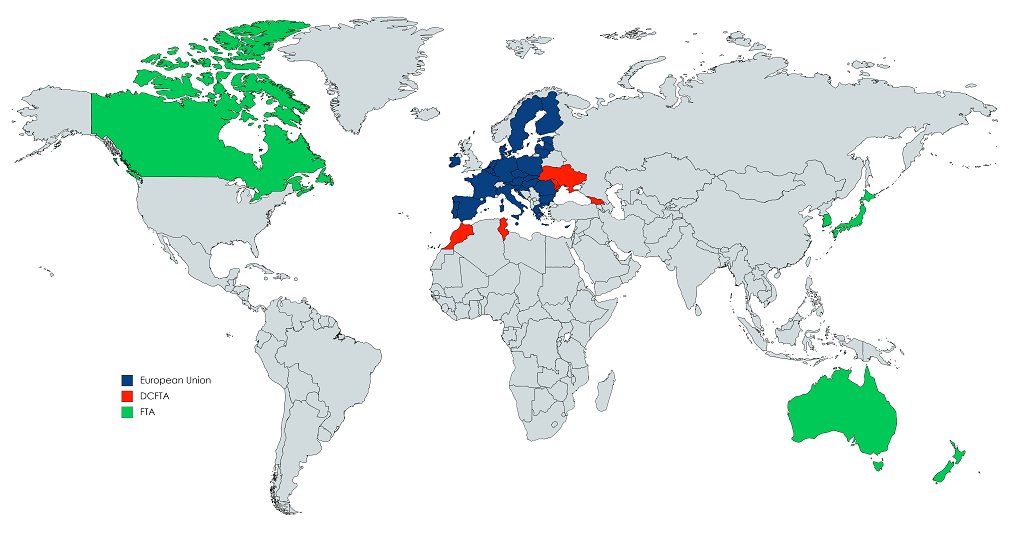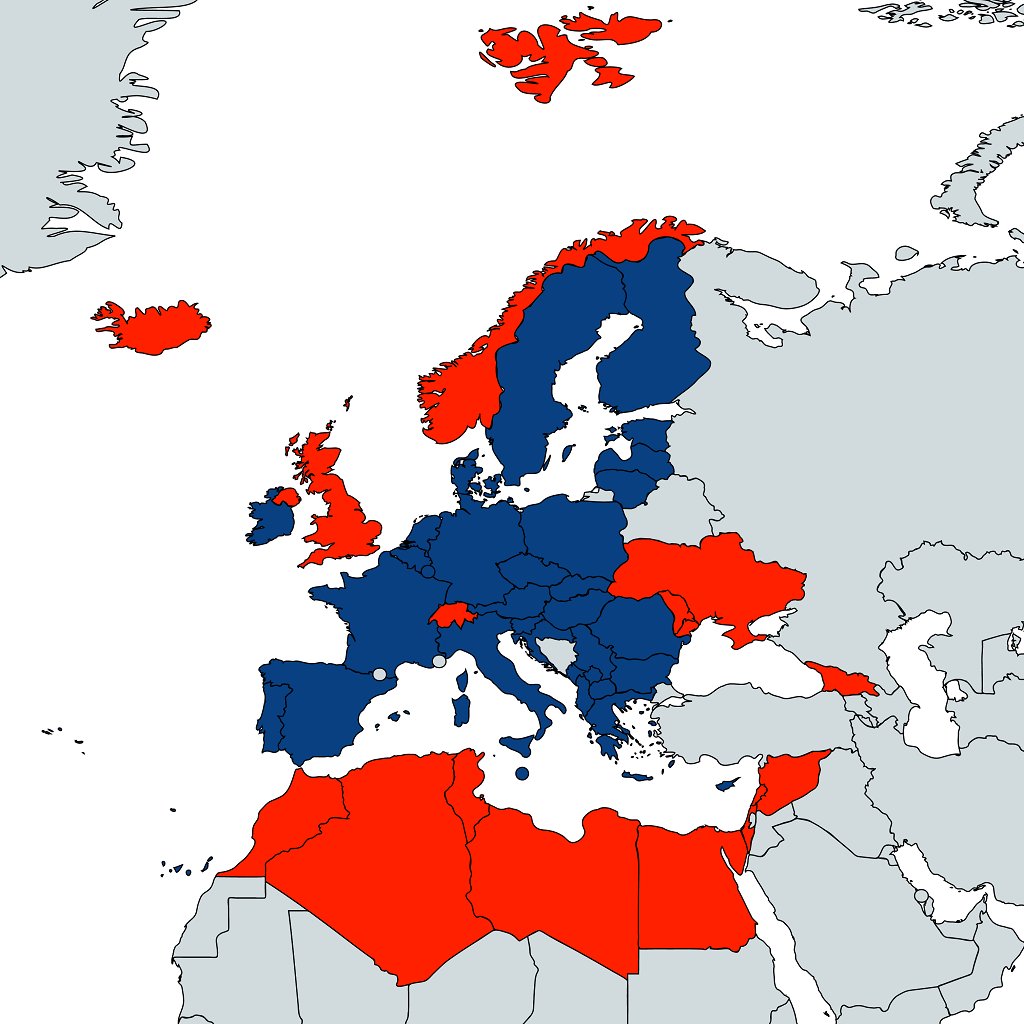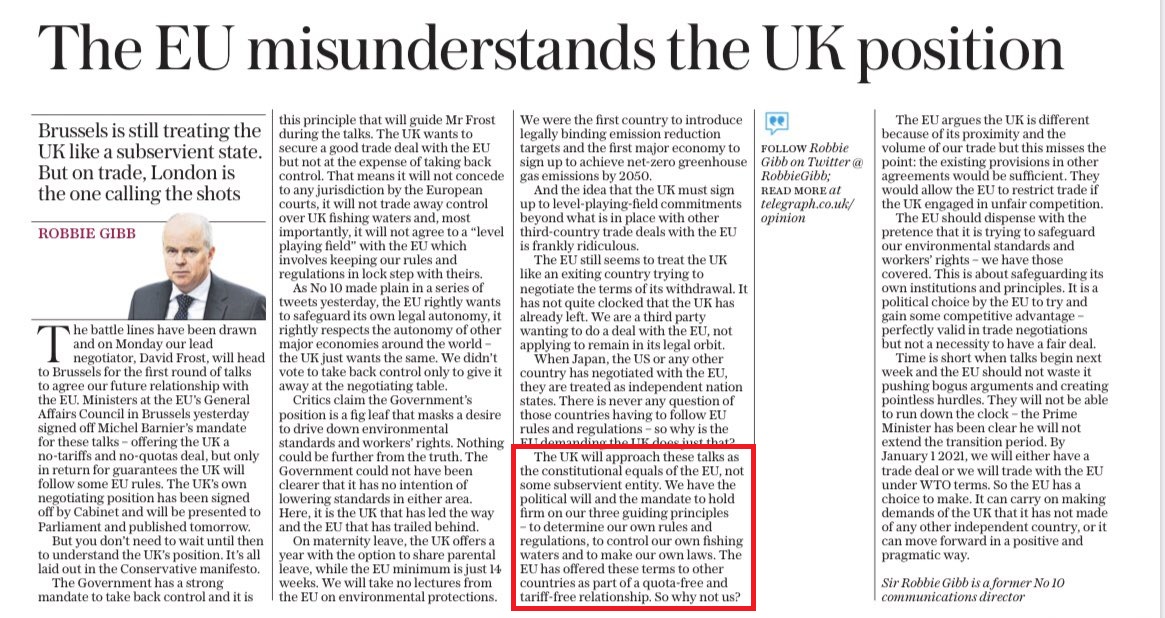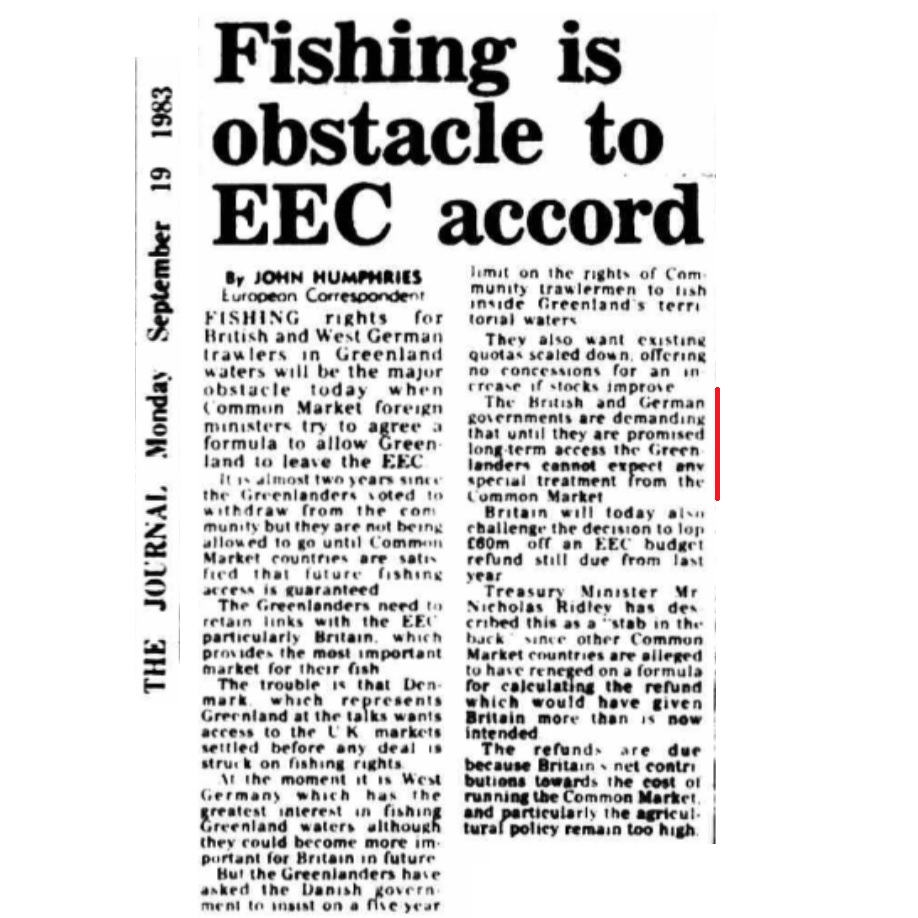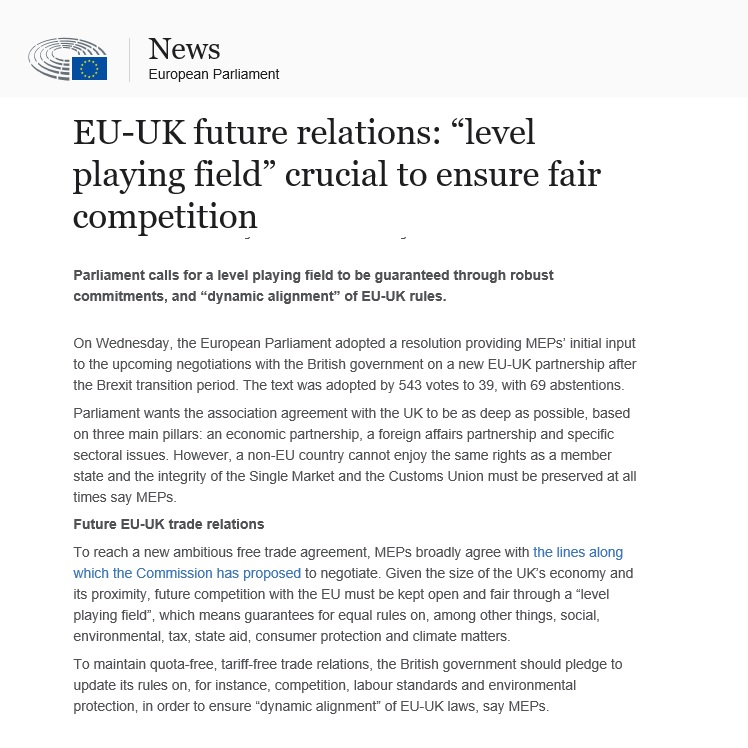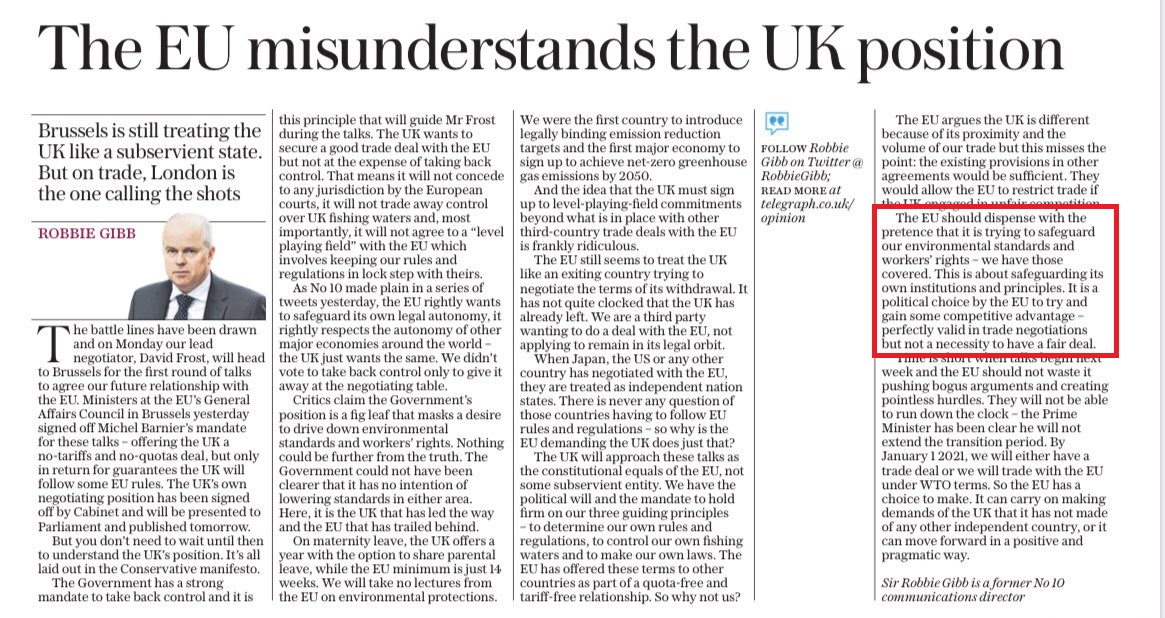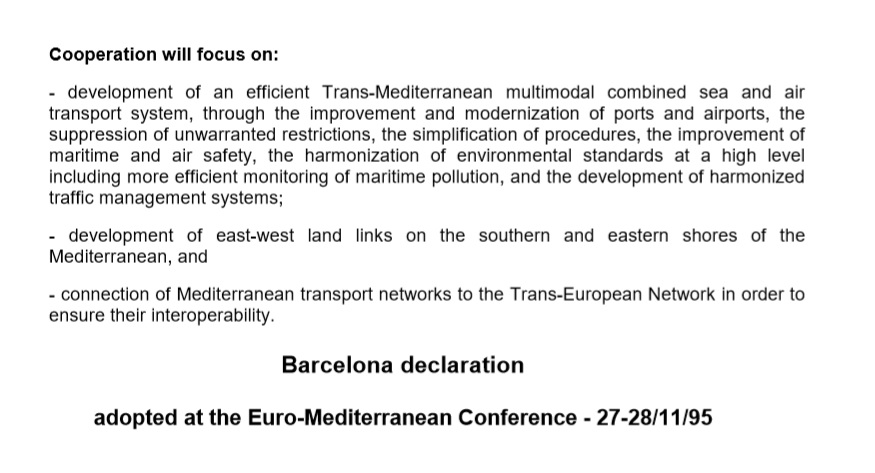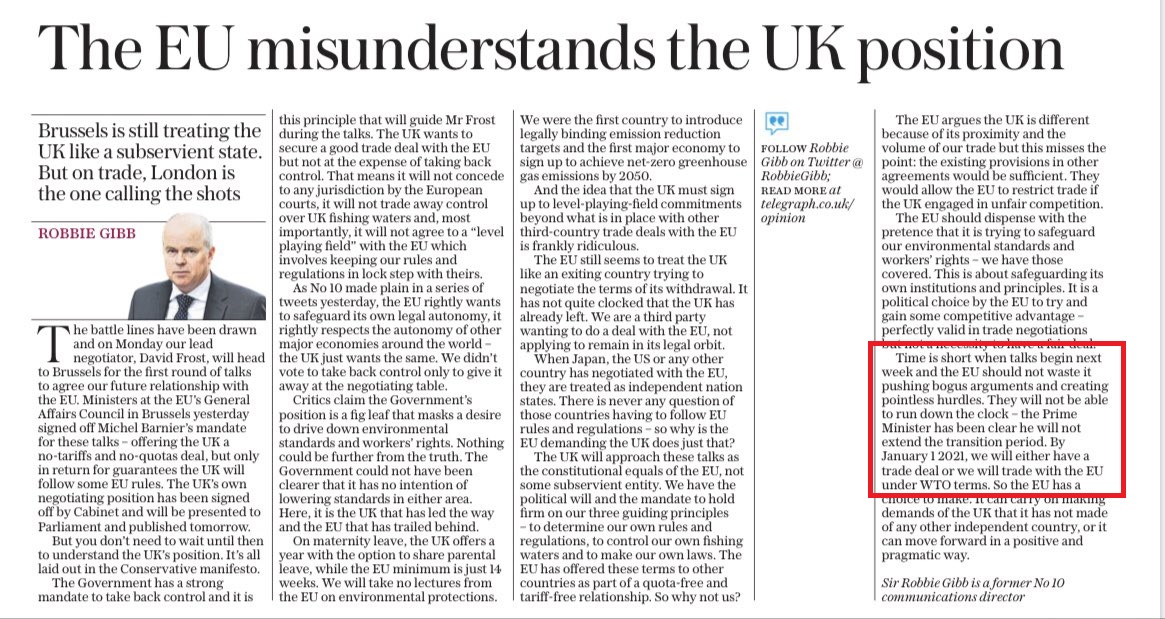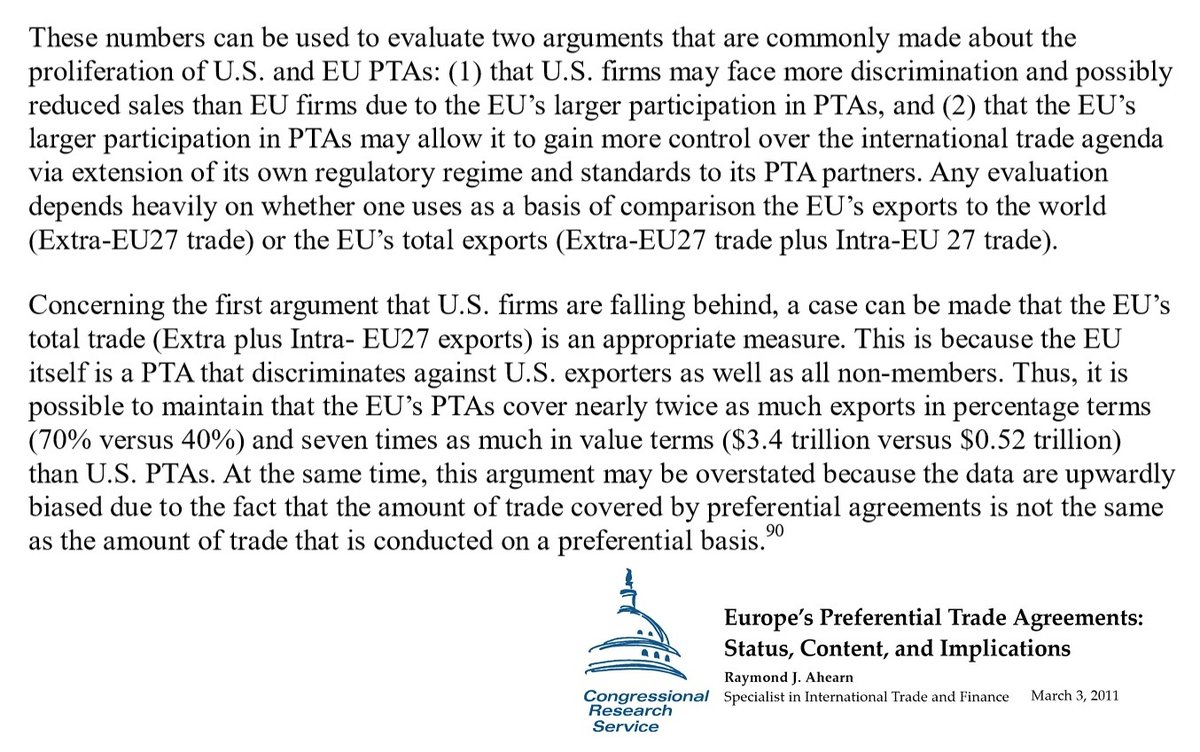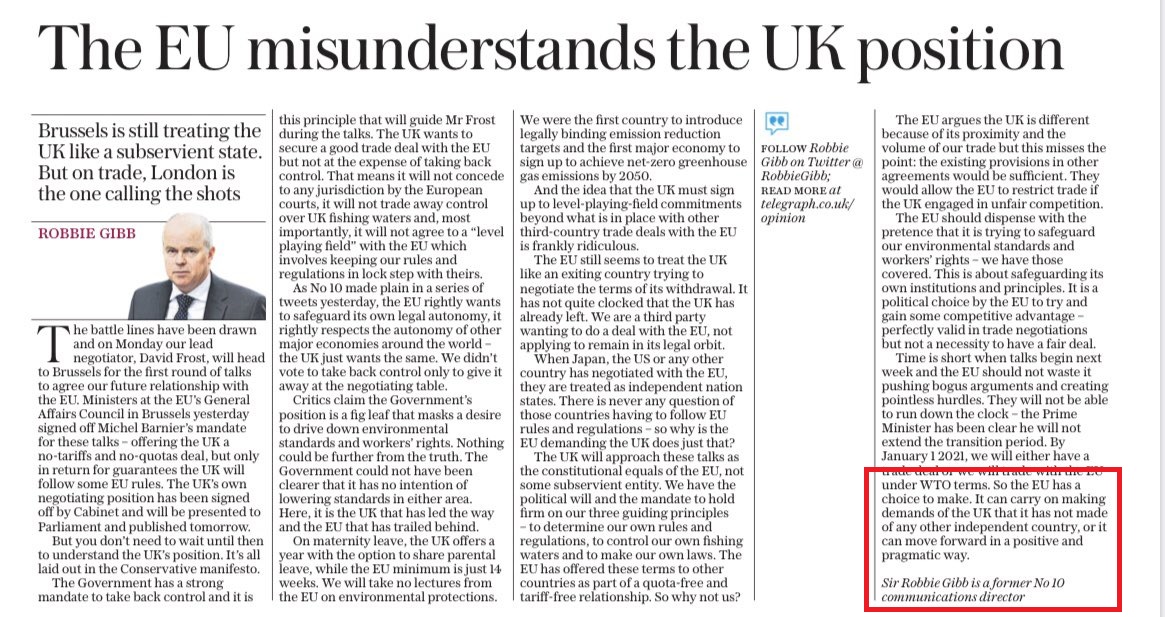1. Robbie Gibb asked me this question a while ago. I can’t say what he doesn’t know, but I can break down his article.
(OK, some of this is pedantic, but a lot is fundamental to trade deals and how the EU approach them.)
(Thread) https://twitter.com/RobbieGibb/status/1233350131593904129">https://twitter.com/RobbieGib...
(OK, some of this is pedantic, but a lot is fundamental to trade deals and how the EU approach them.)
(Thread) https://twitter.com/RobbieGibb/status/1233350131593904129">https://twitter.com/RobbieGib...
2. I’m going to go through the article line by line to reiterate my original point, starting with the suggestion that our position is “all laid out” in the Conservative Manifesto.
3. Actually, it’s confusing as a trade position. One minute is says our relationship will be based on preferential trade, the next it says it will be based on free trade. Which is it? FTAs don’t create free trade, they create "preferential trade".
4. It then uses the term “political alignment” which is a meaningless term in trade, but if it means not signing up to identical regulations going forward, that’s autarky, which isn’t terribly consistent with the free trade claim either.
5. The manifesto then proceeds to a list of domestic things where selling fish is the only thing that sticks out as an actual negotiating position. If this is the negotiating mandate “all laid out”, then we are in real trouble.
6. Robbie then writes that the government has a strong mandate (we assume from the manifesto) and that it will lead to the government not conceding any jurisdiction to the European Courts.
7. But that’s not what is says in the manifesto. All it says is that the ‘role’ of the European Court of Justice will end.
8. It’s also important to note that the ECJ was one of the current Prime Minister’s Withdrawal Agreement red lines in 2017, but a few months after becoming Prime Minister, he signing up to the ECJ and its continuing involvement in the Northern Ireland protocol.
9. After several failed attempts to relate the manifesto, this was the big moment where Robbie said something right.
It was such an achievement, I printed this sentence out and stuck it on my fridge…
It was such an achievement, I printed this sentence out and stuck it on my fridge…
10. Only it’s a bit to deterministic for my liking, the fish hand isn’t as strong as some people believe. Drawing red lines like this is a bad move, as anyone in the May government, who is capable of learning from their own mistakes, knows.
Basically... everybody but Nick T.
Basically... everybody but Nick T.
11. The UK don’t want to get into a situation when the EU puts tariffs on, it will lead to a rebalancing of FDI in the EU’s favour.
12. And we have our pressure points, which is why Argentina is celebrating what they see as an own goal.
In fact, they’d probably split their sides if they knew Peter Shilton voted for it.
In fact, they’d probably split their sides if they knew Peter Shilton voted for it.
13. Robbie then says something that suggests he believes he can speak for the motivations of 17.4 million people, which is either disingenuous, or the balance of his mind has snapped and he has developed some sort of Napoleon complex.
14. On the “Take back control” point, the people who created that slogan also included this quote on their website and designed this graphic which they encouraged people to share widely on social media.
15. While linking to the whole quote which, in context, very clearly suggests we could end up applying the laws of the EU.
It must, therefore, be consistent with their “take back control” campaign.
It must, therefore, be consistent with their “take back control” campaign.
16. Robbie continues his argument as if trade deals are on a government by government basis (they definitely are not), before declaring we lead on rights, giving maternity rights as an example.
17. But level playing field provisions don’t just the things a country is good at, and covers things like this Paternity leave baseline where we have clearly not “led the way”.
18. That’s before we get to Parental leave, and Robbie may want to consider that a more broad appreciation of policy is what is needed to lead in a field, rather than a straight number comparison in an individual area.
19. Robbie is then keen to push the UK’s great green credentials, and again this ends up on the fridge next to the fish sentence. The UK has been very quick to write the green legislation…he is correct when he writes this…
in the Telegraph…
of all places...
in the Telegraph…
of all places...
20. But this doesn& #39;t fact up to the fact that the EU is hardly likely to ignore a Brexit campaign where the high level of their Environmental standards were disparaged in an attempt to win support.
21. Bringing it back to the fact that trade deals are not government specific, a man tipped as a future Prime Minister has also since said he would have removed a pesticide ban immediately after Brexit.
22. And while the UK may be good at making legislation for the Environment, our interpretation of it hasn’t always been wonderful, as our own Environmental Audit committee discovered.
23. Right, now we get to the meat of Robbie’s “point”: Wanting consistency with how the EU treat other countries. A point that could only be made after hours of painstakingly not researching a damn thing.
24. OK, we& #39;re at the bit that our government and Brexit commentators don& #39;t seem to have grasped about the EU proposal...
Historically the EU *always* treated each deal as bespoke and were tailored, among other things, relative to distance.
Historically the EU *always* treated each deal as bespoke and were tailored, among other things, relative to distance.
25. Although when the DOHA round started to go bad, the EU began to look at ways to develop their trade in a world where the next multilateral round may not complete. This involved creating “Next Generation” templates, such as the Canada model.
26. Some people think that the Canadian model is CETA (our government apparently), but actually it is defined by a number of policy objectives to create a greater level of market integration.
Higher levels of tariff reduction is one.
Higher levels of tariff reduction is one.
27. There are also some technical features. With no DOHA the WTO service agreement was becoming horribly out of date, so the EU moved from a GATS positive list model to a negative list approach with fewer exceptions. Also creating a separate chapter for investment.
28. Improved Intellectual property support. Requirements to comply with conventions such as Rome, Paris, Bern and WIPO, and the EU has even pushed for greater protection in the domestic legislation of its negotiating partner.
29. In Canadian model deals, expect to see legislative harmonisation through the adoption of international standards such as UNECE, where the EU have nearly 50% of the vote and dominate.
30. Finally, opening up public procurement is another major part of the Canadian model achieved through adoption of the WTO Government Procurement Agreement (GPA).
This is what was to be expected when the EU said "The Canadian model".
This is what was to be expected when the EU said "The Canadian model".
31. But the Canadian model isn’t the only "Next Generation" model, and at roughly the same time as the Canadian model was being proposed, it began looking at an FTA template to reflect what they call their: ‘Neighbourhood policy’.
32. And this has led to the Ukrainian model which includes dynamic alignment.
A council is created, a commitment is made, and the commitment is realised by decisions of that council.
As you can see, this is the mechanism being proposed by the EU.
A council is created, a commitment is made, and the commitment is realised by decisions of that council.
As you can see, this is the mechanism being proposed by the EU.
33. Now when we look at the deals done and being negotiated with these templates, there is a pattern that emerges. Think Father Ted sat in a caravan with two toy cows.
34. The EUs long term strategy for alignment is pretty obvious, and it’s not great for a country who wants to diverge.
(To be fair to Robbie, he worked in the May government and therefore may be unaware of the concept of a ‘long term strategy’).
(To be fair to Robbie, he worked in the May government and therefore may be unaware of the concept of a ‘long term strategy’).
35. What is claimed next in the article is a bit scary, because the EU have never offered a zero tariff/zero quota deal to any country, which leaves me wondering if Robbie even understands the term, or how major this offer is.
36. Also, on the fishing point, since the UK & #39;demanded& #39; long term access to the waters of the only country that ever left the project, it would be hypocritical to take offence now.
37. Robbie then goes on to claim the provisions in other deals for unfair practices are enough, but countervailing; anti-dumping; tariffs, will not work very well with the Northern Ireland protocol.
38. He also seems to forget both sides might have a view of the direction to go, and both those sides have to get it through their respective parliaments.
39. Having seemingly misunderstood zero tariff/zero quota, Robbie now believes level playing field commitments provide competitive advantage, when in fact they do the opposite.
(The clue is in the name).
(The clue is in the name).
40. And pushing for Labour and Environmental protection in trade deals has been policy for 16 years. The origins of the relative Environmental neighbourhood policy were the ‘Barcelona declaration’, not ‘competitive advantage’.
41. Ignoring the irony overload that the EU should stop pushing bogus arguments, it’s worth appreciating yet another person, with what appears to be a negative knowledge of trade, threatening the WTO option.
42. He may feel “insulted”, but he is the one who ridiculed himself by using his platform to talk about something he didn’t understand. When you open and close your mouth trying to look like you know what you’re talking about you just look silly.
43. At some point he woke up, and despite having spent most of his life as a television editor and producer, Robbie Gibb honestly believed he was the man to explain what the EU were doing wrong in a trade deal.
Something, incidentally, the EU are actually quite good at.
Something, incidentally, the EU are actually quite good at.

 Read on Twitter
Read on Twitter
